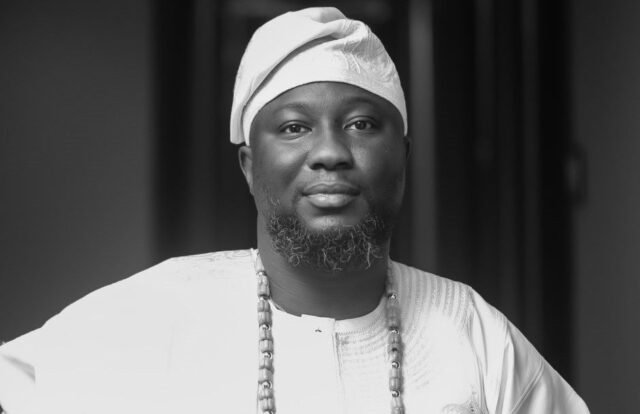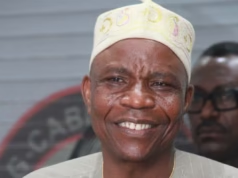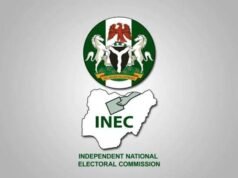In a spirited show of support, Mr Seun Dania, Managing Director of Alpha Geek Technologies, today publicly commended the Federal Government’s renewed push toward digital governance. He described the current trajectory as both bold and essential for Nigeria’s socio-economic future, urging stakeholders in the private sector to join hands in accelerating the transformation.
Dania, whose firm specialises in software development and public sector digital solutions, made the remarks in an exclusive interview with NAN following the government’s unveiling of new e-governance initiatives. According to him, the policy direction reflects a strong desire from the top to modernise how citizens and government interact — from service delivery to internal operations.
“Finally, we are seeing leadership that understands technology is not optional,” Dania said with conviction. “The FG’s messaging affirms that digitising government is no longer a secondary agenda — it is front and centre. What we need now is speed, coherence, and collaboration.”
Table of Contents

Nigeria at a Crossroads: Embracing Digital Governance
Dania is not alone in acknowledging the potential of this moment. Across government and industry corridors, there is mounting optimism that Nigeria’s digital pivot could reshape public institutions, boost accountability, and expand inclusion.
The notion of e-governance in Nigeria has been discussed for years, yet many plans have stalled due to bottlenecks in funding, infrastructure, and resistance to change. What sets today’s push apart, according to Dania, is the synergy he perceives between political will, legislative backing, and growth-oriented digital policy.
He pointed to the recent E-Governance Bill put forth by the National Assembly, which projects that effective digital transformation may raise Nigeria’s GDP by as much as 21 per cent by 2030. This, he said, is not pie in the sky but a solid estimate when public systems become more efficient, transparent, and user-friendly.
“The numbers suggest we’re not just chasing a trend — we’re positioning for a leap in national productivity and competitiveness,” he observed. “But those gains depend on execution: enabling broadband, safeguarding data, training personnel, reforming processes.”
Dania acknowledged that the digital divide remains a major barrier, especially in rural states where connectivity, electricity, and digital literacy are inconsistent. To him, bridging that gap is as important as building apps: “What good is a sleek portal if half the country can’t access it?”
From Vision to Execution: What Industry Wants to See
In his reflections, the tech entrepreneur laid out several expectations from the government if the e-governance dream is to become a reality. These can be grouped broadly into infrastructure, policy & regulation, capacity building, and public-private synergy.
- Infrastructure investment and connectivity
“We need nationwide, uninterrupted internet coverage that is affordable,” Dania urged. He emphasised that high-speed, low-latency connectivity is not a luxury — it is foundational. He also called for a reliable power supply, as many government offices still struggle with erratic electricity, making digital systems vulnerable. - Regulatory clarity and a digital legal framework
Dania spoke about the necessity for clear laws that govern data protection, cybersecurity, and the rights & obligations of citizens in digital spaces. Without such frameworks, he warned, government platforms risk being undermined by breaches or legal ambiguities. He welcomed the e-Governance Bill as a step in the right direction and called for timely passage and consistent implementation. - Skilling and digital inclusion
“Technology must be human-centred,” he said. He advocated for sustained efforts to upskill civil servants, from core ministries down to local government staff, so they can manage and sustain digital platforms. He also urged outreach efforts to citizens, especially in underserved areas, to avoid disenfranchisement. Digital literacy programmes, community tech hubs, and mobile training units were some tools he proposed. - Public–private collaboration and innovation ecosystems
Dania contended that the government alone cannot deliver transformative digital governance. He called for structured partnerships: co-funded development, open APIs, shared infrastructure, and innovation challenges to engage startups and SMEs. He also suggested a “sandbox” environment where new ideas can be tested — for example, in pilot districts or thematic service zones.
He emphasised trust as a central pillar: “There must be transparency in procurement, governance of shared systems, and accountability in deployment. If citizens trust the digital channels, adoption will be high.”
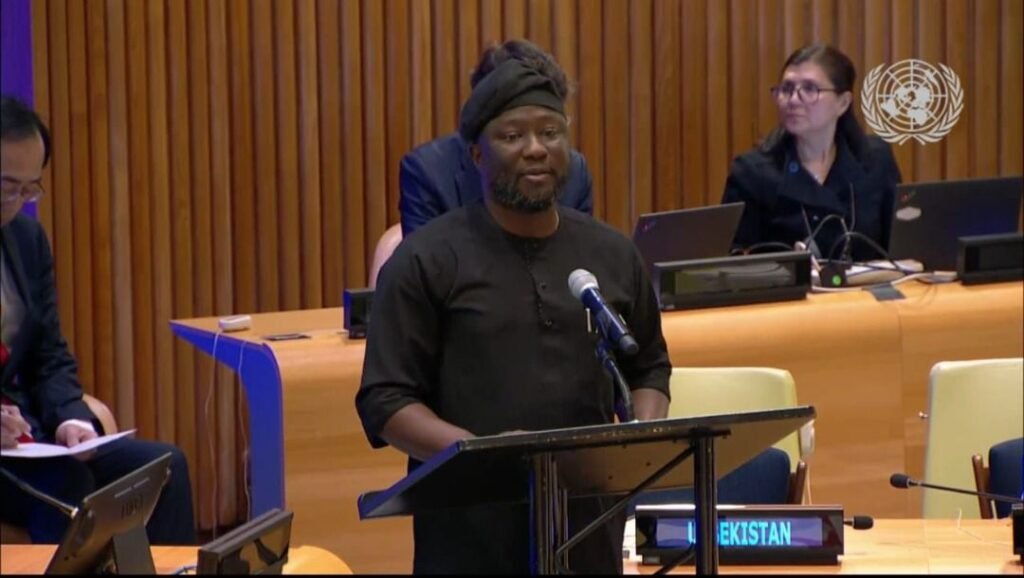
Voices from the Sector and the Road Ahead
While Dania’s support is noteworthy, industry watchers believe that maintaining momentum will be critical. In recent years, Nigeria has seen multiple digital strategies announced — but follow-through has often been patchy. Many private sector players will be watching closely for signs of consistency, resource allocation, and results.
Stakeholders across the tech space — from telecoms to fintech to infrastructure providers — widely agree that the timing is favourable. With Nigeria’s youth population increasingly tech-savvy and demands for efficient public services rising, leveraging digital governance is becoming not just preferred but necessary.
Some analysts caution that change management within government institutions may be slower than anticipated. Cultural inertia, departmental siloes, resistance from entrenched interests, and procurement corruption are deeply rooted challenges. But Dania expressed faith that strong leadership and ongoing industry engagement can mitigate those risks.
Looking forward, he identified some key milestones that he would be watching:
- Passage and enforcement of the E-Governance Bill
- Launch of interoperable government identity and citizen services platforms
- Measurable reduction in “paper-based” processes and queue times
- Growth in citizen satisfaction with government services
- Early wins in pilot states or agencies that can be scaled nationally
“Once we see one or two success stories — say, a state government fully processing permits or land titles digitally — that is proof of concept,” he said. “Others will follow fast.”
Dania also implored the government not to monopolise the narrative. He urged openness to civil society, academia, and technology communities that should serve as feedback loops and watchdogs to ensure service quality and accountability.
A Personal Note on Why It Matters
For Dania, the drive toward e-governance is more than just professionals talking about software and systems — it is deeply personal. He shared that he built his career believing in the transformative power of technology: to reduce corruption, close access gaps, and make ordinary citizens’ lives easier.
He recalled how, in his younger years, seeing long queues for simple government tasks frustrated him — not because of the time lost, but because of the sense that the system was not built for citizens. Today, he feels the country is poised to reverse that relationship: build systems that serve people, not the other way around.
He also expressed optimism for younger tech talents across Nigeria: “There are brilliant minds in Enugu, Kano, Bauchi, Calabar — everywhere. But they often lack platforms to solve public sector problems. Let’s give them bridges: government contracts, support schemes, mentorship. Let them build services that matter.”
As he concluded, he said, “If the FG is sincere, if structure and follow-through are present, we will see an uplift in citizen experience, trust in institutions, and indeed, a Nigeria that is ready to compete globally in the digital age.”
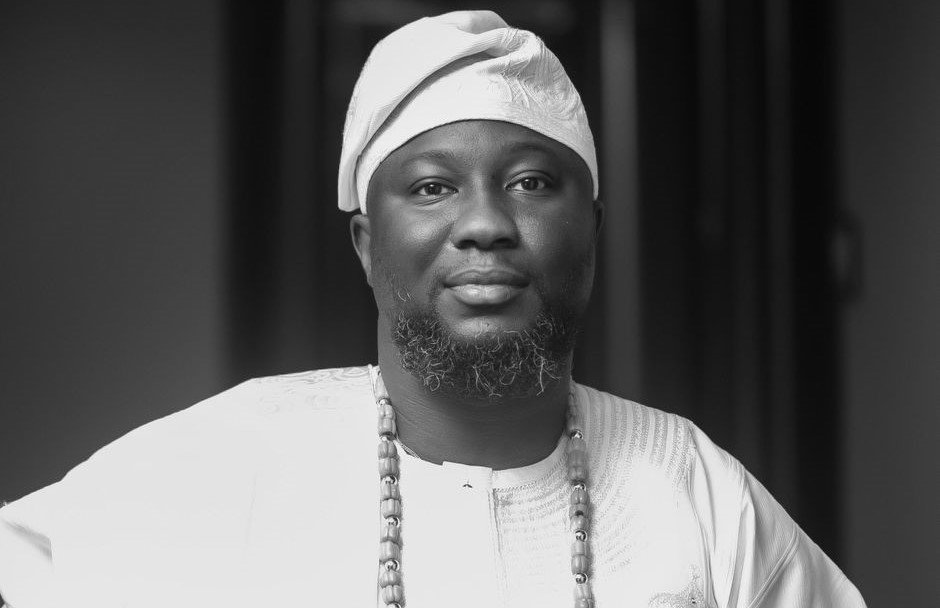
Conclusion
Mr Seun Dania’s commendation of the FG e-Governance drive strikes a hopeful chord in Nigeria’s digital narrative. His perspective highlights that while ambition is necessary, success will be judged — and earned — through execution, equity, and partnership. The public and private sectors now face a shared moment: to turn a plan into a lived experience for millions of Nigerians.
If the government and industry can anchor this journey in transparency, inclusion, and trust, the rewards may extend far beyond reduced queues — they may reshape Nigeria’s trajectory for decades to come.
Join Our Social Media Channels:
WhatsApp: NaijaEyes
Facebook: NaijaEyes
Twitter: NaijaEyes
Instagram: NaijaEyes
TikTok: NaijaEyes


